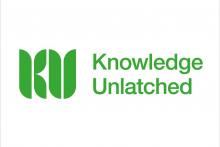State of Open Data 2018 released
Open data has become more embedded in the research community, according to an industry report published today.
In the Figshare report, 64 per cent of survey respondents reveal they made their data openly available in 2018. However, a large number of respondents (60 per cent) had never heard of the FAIR principles, a guideline to enhance the reusability of academic data.
Figshare's annual report, The State of Open Data 2018, was launched to coincide with global celebrations around Open Access Week. The report is the third in the series and includes survey results and a collection of articles from global industry experts, as well as a foreword from Ross Wilkinson, Global Strategy at the Australian Research Data Commons.
Two years on from the first report in 2016, which was created to examine attitudes and experiences of researchers working with open data – sharing it, reusing it, redistributing it – survey results continue to show encouraging progress, that open data is becoming more embedded in the research community.
For this year’s survey, as with previous years, Figshare partnered with Springer Nature, to ensure as diverse an audience as possible.
Key findings include:
- 64 per cent of respondents revealed they made their data openly available in 2018, a seven per cent rise on 2016.
- Data citations are motivating more respondents to make data openly available, increasing seven per cent from 2017 to 46 per cent
- 60 per cent of respondents had never heard of FAIR principles (Findability, Accessibility, Interoperability and Reusability – provide a guideline for data producers and publishers to enhance the reusability of academic data.)
- The percentage of respondents in support of national mandates for open data is higher at 63 per cent than in 2017 (55 per cent)
- Respondents who revealed that they had reused open data in their research continues to shrink. In 2018 48 per cent said they had done this, whereas in 2017 50 per cent had done so, with 57 per cent in 2016.
- Most researchers felt that they did not get sufficient credit for sharing data (58 per cent), compared to nine per cent who felt they do.
- Respondents having lost research data has decreased from 2017 (36 per cent versus 30 per cent in 2018).
- We asked a number of questions about FAIR principles this year with some surprising results. The percentage of respondents who reported being familiar with the principles was just 15 per cent with 25 per cent having previously heard of FAIR and 60 per cent never having heard of them.
The results confirmed that, despite publishers, funders and institutions rapidly adopting these principles, there remains a crucial gap in educating researchers. They further show the need for initiatives like Go Fair, which gives researchers clear instructions on how to be FAIR compliant.
Mark Hahnel, CEO and founder of Figshare, said: 'In recent years we’ve seen the conversation move from data not only being open but being FAIR. This is a major shift considering we spent the early years of Figshare trying to convince researchers to share their data full stop.
'For every new feature we build at Figshare, we have one eye on the FAIR principles, so as a repository we are doing as much of the heavy lifting as possible for researchers. There is still a lot work to be done to educate researchers on what is expected of them but the report highlights many new initiatives from across the research ecosystem, all pulling together in the same direction.'
Download the report on Figshare.











